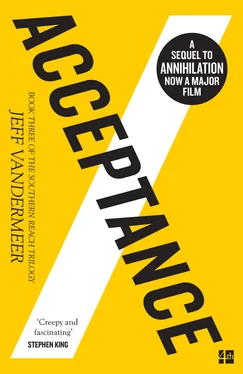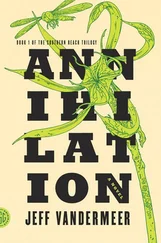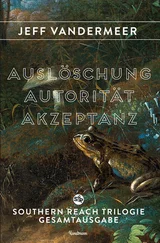“Meet you up there,” he said finally, having had enough, and leaped up the stairs, taking them two at a time while Henry and Suzanne labored below, soon out of sight. He wanted as much time at the top without them as possible. The government would retire him at fifty, mandatory, but he planned to be as in shape then as now. Despite the twinge in his joints.
At the top, hardly even breathing heavy, Saul was happy to find the lantern room as he’d left it, with the lens bag placed over the beacon, to avoid both scratching and discoloration from the sun. All he had to do was open the lens curtains around the parapet to let in light. His concession to Henry, for just a few hours a day.
Once, from this vantage, he’d seen something vast rippling through the water beyond the sandbars, a kind of shadow, the grayness so dark and deep it had formed a thick, smooth shape against the blue. Even with his binoculars he could not tell what creature it was, or what it might become if he stared at it long enough. Didn’t know if eventually it had scattered into a thousand shapes, revealed as a school of fish, or if the color of the water, the sharpness of the light, changed and made it disappear, revealed as an illusion. In that tension between what he could and couldn’t know about even the mundane world, he felt at home in a way he would not have five years ago. He needed no greater mysteries now than those moments when the world seemed as miraculous as in his old sermons. And it was a good story for down at the village bar, the kind of story they expected from the lighthouse keeper, if anyone expected anything from him at all.
“So that’s why it’s of interest to us, what with the way the lens wound up here, and how that relates to the whole history of both lighthouses,” Suzanne said from behind him. She had been having a conversation with Saul in his absence, apparently, and seemed to believe he had been responding. Behind her, Henry was about ready to collapse, although the trek had become a regular routine.
When he’d dropped the equipment and regained his breath, Henry said, “You have a marvelous view from up here.” He always said this, and Saul had stopped giving a polite response, or any response.
“How long are you here for this time?” Saul asked. This particular stint had already lasted two weeks, and he’d put off asking, fearing the answer.
Henry’s shadow-circled gaze narrowed. “This time our permit allows us access through the end of the year.” Some old injury or accident of birth meant his head was bent to the right, especially when he spoke, right ear almost touching the upward slope of his shoulder. It gave him a mechanical aspect.
“Just a reminder: You can touch the beacon, but you can’t in any way interfere with its function.” Saul had repeated this warning every day since they’d come back. Sometimes in the past they’d had strange ideas about what they could and could not do.
“Relax, Saul,” Suzanne said, and he gritted his teeth at her use of his first name. At the beginning, they’d called him Mr. Evans, which he preferred.
He took more than the usual juvenile pleasure in positioning them on the rug, beneath which lay a trapdoor and a converted watch room that had once held the supplies needed to maintain the light before the advent of automation. Keeping the room from them felt like keeping a compartment of his mind hidden from their experiments. Besides, if these two were as observant as they seemed to think they were, they would have realized what the sudden cramping of the stairs near the top meant.
When he was satisfied they had settled in and were unlikely to disturb anything, he gave them a nod and left. Halfway down, he thought he heard a breaking sound from above. It did not repeat. He hesitated, then shrugged it off, continued to the bottom of the spiral stairs.
Below, Saul busied himself with the grounds and organizing the toolshed, which had become a mess. More than one hiker wandering through had seemed surprised to find a lighthouse keeper walking the grounds around the tower as if he were a hermit crab without its shell, but in fact there was a lot of maintenance required due to the way storms and the salt air could wear down everything if he wasn’t vigilant. In the summer, it was harder, with the heat and the biting flies.
The girl, Gloria, snuck up on him while he was inspecting the boat he kept behind the shed. The shed abutted a ridge of soil and coquina parallel to the beach and a line of rocks stretching out to sea. At high tide, the sea flowed up to reinvigorate tidal pools full of sea anemones, starfish, blue crabs, snails, and sea cucumbers.
She was a solid, tall presence for her age, big for nine—“Nine and a half!”—and although Gloria sometimes wobbled on those rocks there was rarely any wobble in her young mind, which Saul admired. His own middle-aged brain sometimes slipped a gear or two.
So there she was again, a sturdy figure on the rocks, in her winter-weather gear—jeans, hooded jacket and sweater underneath, thick boots for wide feet—as he finished with the boat and brought compost around back in the wheelbarrow. She was talking to him. She was always talking to him, ever since she’d started coming by about a year ago.
“You know my ancestors lived here,” she said. “Mama says they lived right here, where the lighthouse is.” She had a deep and level voice for one so young, which sometimes startled him.
“So did mine, child,” Saul told her, upturning the wheelbarrow load into the compost pile. Although truth was, the other side of his family had been an odd combination of rumrunners and fanatics who he liked to say, down at the bar, “had come to this land fleeing religious freedom.”
After considering Saul’s assertion for a moment, Gloria said, “Not before mine.”
“Does it matter?” He noticed he’d missed some caulking on the boat.
The child frowned; he could feel her frown at his back, it was that powerful. “I don’t know.” He looked over at her, saw she’d stopped hopping between rocks, had decided that teetering on a dangerously sharp one made more sense. The sight made his stomach lurch, but he knew she never slipped, even though she seemed in danger of it many times, and as many times as he’d talked to her about it, she’d always ignored him.
“I think so,” she said, picking up the conversation. “I think it does.”
“I’m one-eighth Indian,” he said. “I was here, too. Part of me.” For what that was worth. A distant relative had told him about the lighthouse keeper’s job, it was true, but no one else had wanted it.
“So what,” she said, jumping to another sharp rock, balancing atop it, arms for a moment flailing and Saul taking a couple of steps closer to her out of fear.
She annoyed him much of the time, but he hadn’t yet been able to shake her loose. Her father lived in the middle of the country somewhere, and her mother worked two jobs from a bungalow up the coast. The mother had to drive to far-off Bleakersville at least once a week, and probably figured her kid could manage on her own every now and again. Especially if the lighthouse keeper was looking after her. And the lighthouse held a kind of fascination for Gloria that he hadn’t been able to break with his boring shed maintenance and wheelbarrow runs to the compost pile.
In the winter, too, she would be by herself a lot anyway—out on the mudflats just to the west, poking at fiddler crab holes with a stick or chasing after a half-domesticated doe, or peering at coyote or bear scat as if it held some secret. Whatever was on offer.
“Who’re those strange people, coming around here?” she asked.
That almost made him laugh. There were a lot of strange people hidden away on the forgotten coast, himself included. Some were hiding from the government, some from themselves, some from spouses. A few believed that they were creating their own sovereign states. A couple probably weren’t in the country legally. People asked questions out here, but they didn’t expect an honest answer. Just an inventive one.
Читать дальше












